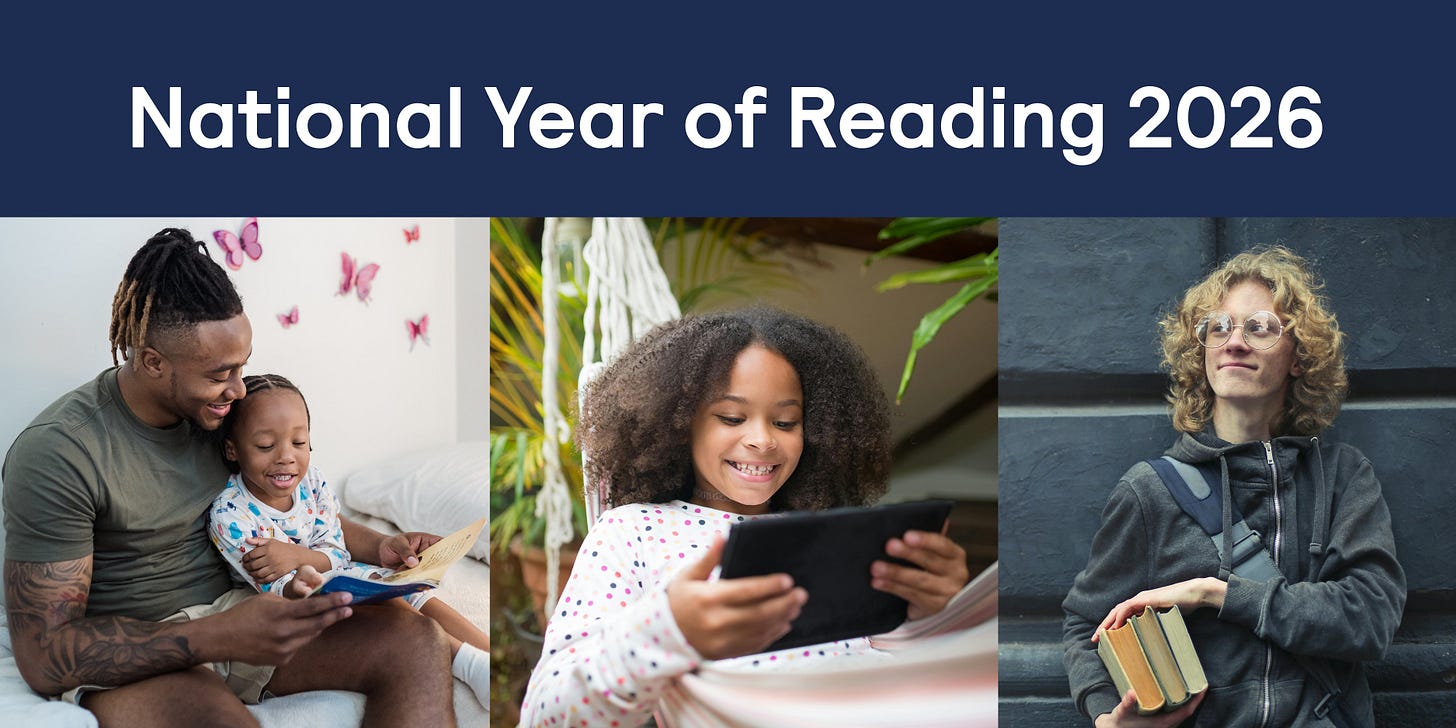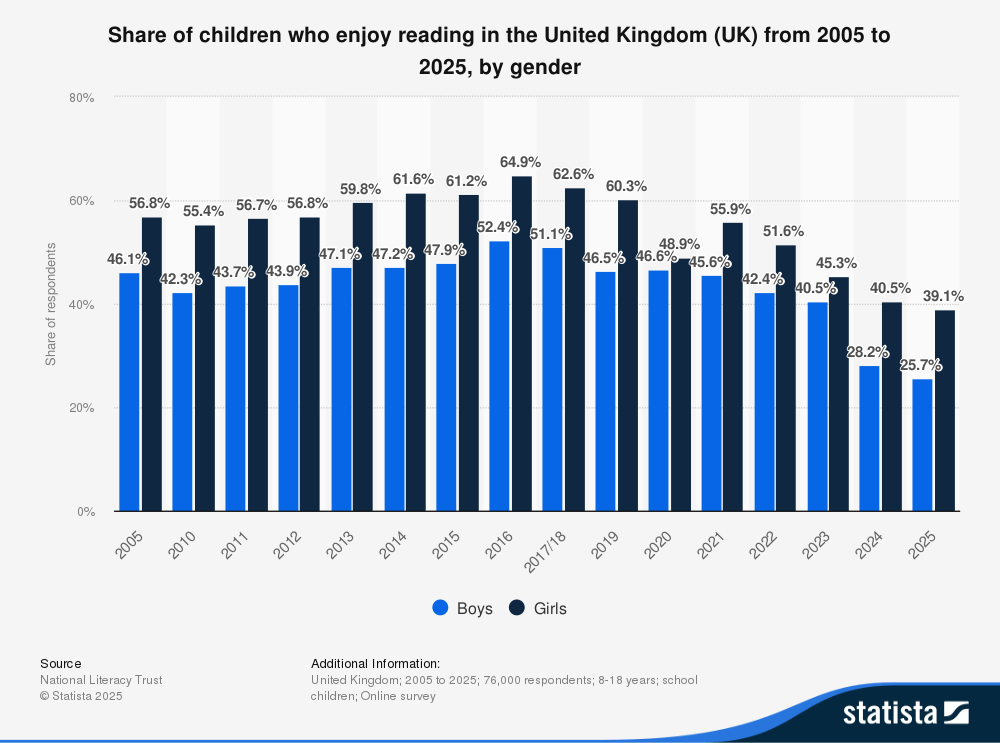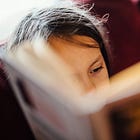YouTube saves book publishers, AI saves bedtime, and *phew* - everyone will be reading in 2026
Friday Footnotes #1
Welcome to Friday Footnotes, a short weekly newsletter from Storygram Labs about reading, motivation, children’s books, writers, and whatever else catches our eye!
In the Headlines
National Year of Reading (2026)
The Department for Education and National Literacy Trust are joining forces to turn around the trend of children’s lack of reading enjoyment, by declaring 2026 a ‘National Year of Reading’.1
The Education Secretary, Bridget Phillipson said:
Reading holds the keys to so much of children’s education, so the decline in reading for pleasure among young people should sound alarm bells loud and clear.
This can’t be just a government mission. It needs to be a national one. So, it’s time for all of us to play our part, put our phones down and pick up a book.
Can’t fault that. Though whether your average punter will choose to read in 2026 because they are being told to do so by an MP is anyone’s guess.
Scholastic pins hope on YouTube
The publisher that owns Harry Potter and The Hunger Games is struggling (their share price is down 40% in the last year). Their plan… to focus more on YouTube. 23
It’s difficult to imagine a more obvious sign that a publisher has lost its way as it scrambles to keep shareholders happy. They might want to update their mission statement while they’re at it:
Scholastic inspires all children to become life-long readers

Can AI get kids reading?
Luna Storytime is an app that promises to “turn your child's ideas into age-appropriate, beautifully illustrated stories that transform bedtime into an opportunity for connection, creativity, and adventure.”4
Through its low-light, tactile interface, Luna provides a screen-low experience that inspires real-world creativity, while maintaining the familiarity of bedtime reading.
Screen-low!? Pull the other one!
Bedtime is the perfect time to teach children that books are more relaxing than screens, and that their parents care enough to spend time reading with them. Outsourcing human connection at bedtime to an app? No thanks.
Stat of the week
25.7% — that’s the number of boys aged 8-18 who said they enjoy reading in the UK in 2025. For girls, it was 39.1% — but these are the lowest figures of all time for both genders.5
Worth a read
Teacher Tom is an energetic blogger in the USA, whose article “If We Want Children to Read for Pleasure” caught our attention. Here’s a sample:
I have no doubt that smartphones and whatnot are distractions from reading, but there have always been easy distractions competing with books. I mean, we had the whole of outdoors and all the neighborhood children available to us, which, if we allowed the same free access to today's children, would, I'm certain, be a much bigger lure than any screen. But books actually brought us inside, even on our holidays, because our schools hadn't yet ruined books for us. Books weren't mere schoolroom resources, but rather doorways to freedom.
I fear that we have systematically removed pleasure from reading by turning it into an academic exercise. That is why it's so unpopular.
(Read the full article here).
This lines up with what children are saying themselves:
Quote
Make books your treasures, and bookshelves your gardens of delight.
— Judah ibn Tibbon (12th century scholar)6
That’s all for today. Have a wonderful weekend.
DfE press release: https://www.gov.uk/government/news/parents-urged-to-read-more-to-boost-childrens-life-chances
https://www.tubefilter.com/2025/07/15/scholastic-youtube-9-story-media-group/
(Paywalled) https://www.wsj.com/business/media/scholastic-restructure-youtube-15f7001b
https://lunawrites.ai/
https://www.statista.com/statistics/299107/enjoyment-of-reading-among-boys-and-girls-in-the-uk/




